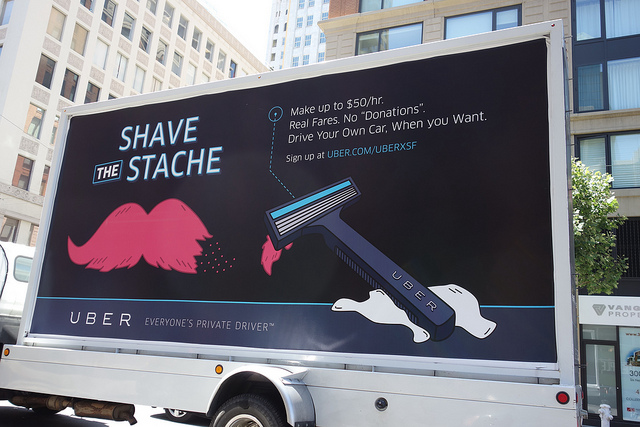
The battle between technology applications such as Uber and Lyft and the state governments is well-known and well-publicized. The standard David and Goliath story: the government sees that the applications are more successful than the government-run cabs as the applications are more innovative in how they make the applications to be fun to use and easier to get around. Thus, the government is using everything at their disposal in order to prevent people from using Uber & Lyft over their cabs. According to the Franklin Center for Government & Public Integrity, this is occurring currently in New Mexico, and Watchdog.org reporter Rob Nikolewski has covered the scuffle.
“In New Mexico, Nikolewski has covered the current standoff between ride- sharers and the state’s Public Regulation Commission (PRC). In June the PRC voted 3-2 to deny a request from Uber for a certificate to provide “specialized passenger service” and allow them to operate. But the ride sharing companies continued to give rides in defiance of regulators and despite the PRC filing a cease and desist order on Lyft in May.”
Due to the demand by the public, the PRC caved two weeks later, directing its staff to draft a proposal to allow companies such as Uber & Lyft to operate in New Mexico. We will know for sure though, once the final vote occurs. New Mexico isn’t the only state that is having this reaction. Virginia has also taken similar reaction in preventing the companies from operating. Watchdog.org Virginia Bureau’s Kathryn Watson revealed in a report that there was significant history with taxicab industry and lobbying and campaign donations in Virginia.
“Since 1996, the Virginia Taxicab Association has donated nearly half a million dollars to Virginia politicians and has retained four registered lobbyists as of May 2014.”
States are looking for any reason to stop Uber & Lyft’s operations from saying they are “operating illegally” to “protecting the public from riding in the car with strangers”. The back and forth between the state government vs. the application companies is an interesting one, as it’s showing two major discussion points. Firstly, what a monopoly like the cab companies will do when their power is challenged. And secondly, each state is beginning to define what free market means in each state, include what the lines are.
To read full article click here.

